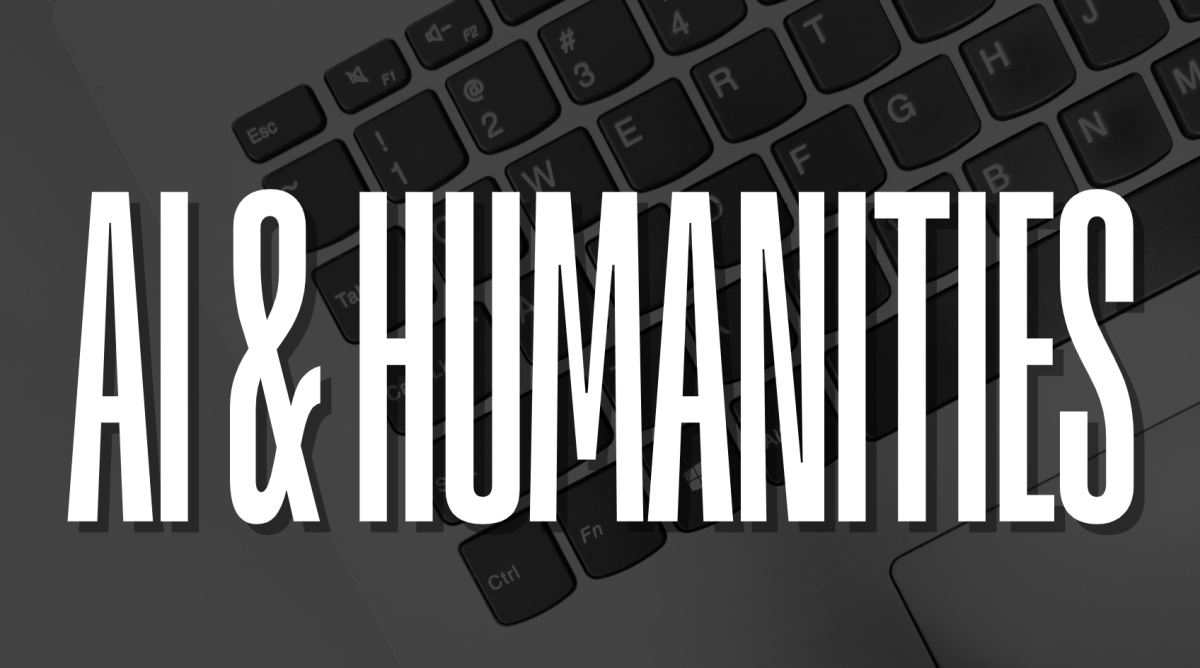These days, you can’t avoid seeing “AI” in every other news headline or LinkedIn post on your feed. Every academic and pundit has an opinion on artificial intelligence (AI), and the dizzying volume of utopian visions and doomsday predictions makes it impossible to know who to believe. In corporate industries, optimists herald the technology as a revolutionary tool that will automate workflow processes and enhance worker productivity. Yet across the humanities, skeptics lament these large language models as the death of creativity, critical thinking and perhaps humanity itself.
While nobody agrees on what an AI-augmented future looks like, few deny the disruptive changes this new age of intelligence will bring. As university students attempting to navigate this precarious landscape, we stand at the epicenter of AI’s current and future impacts. With industries looking to downsize and outsource entry-level work to AI, recent college graduates are first on the chopping block. The college-to-career pipeline is breaking down and many of us are rightfully panicking at the daunting prospect of such an uncertain future. But ignoring AI is not a solution, nor is simply cheating our way through college; we need an informed, unified policy to address AI in universities and we need students — skeptics and enthusiasts alike — working together to lead the charge.
Recently, the bombardment of AI-related content forced me to reckon with the potential effects of AI on my own life and career. After a summer spent mindlessly crunching numbers in Excel and using AI to write Structured Query Language queries, I’ve come to the sobering realization that I am replaceable. As a mathlete from a technical STEM background, I have divided my free time between chess tournaments and math competitions, and I pride myself on my ability to solve problems with both speed and precision. I was promised a lucrative, predictable career path growing up, so I opted to invest in these technical strengths, dismissing the humanities as a waste of time.
Today, with AI stripping away the value of the skills I’ve built my identity upon, I’m left naked and exposed to the reality of what’s really under my armor: an inattentive reader, a mediocre writer and an unoriginal thinker with little to contribute to society. And like many students around the country, I’m returning to my university campus unsure of how to cope with the paralyzing uncertainty of a world spinning faster each time OpenAI releases a new model of ChatGPT. If there’s no guarantee that AI won’t take our jobs by the time we graduate, why are we even in college? What can we do?
But amidst all this doom and gloom about the future of humanity, AI affords us all — STEM, business, humanities and arts students alike — the opportunity to collectively slow down and rethink what it means to be human. D. Graham Burnett puts it best: “To be human is not to have answers. It is to have questions—and to live with them.” In collectively obsessing over accelerating progress, we have become complacent as a species, forgetting to ask ourselves what values and goals humanity ought to pursue. Is it art and beauty? Love and emotion? Human connection? The Sisyphean effort to find purpose despite the awareness of our mortality?
It is precisely these questions that the humanities strive to answer. AI has immense potential to fundamentally transform the world we live in, but it must be led by people concerned with the right questions of the human experience. That’s why the liberal arts are even more crucial in an age where higher education faces its greatest uncertainty. We need our future tech bros, corporate executives and politicians to study the broader human implications of AI and build technological infrastructures and policies that will contribute to human flourishing. But as much as we need technical minds building these models, we desperately need scholars in the humanities thinking and talking about AI; after all, they’re the ones who will ensure that technology serves humanity rather than the other way around.
I know too many friends studying the humanities who treat the topic of AI as taboo. Voices from humanities backgrounds are even more crucial to the AI conversation because we need them to shape the role of this technology in both our university and our shared society. As the generation with the most to lose, we cannot afford to defer decisions about AI to self-proclaimed “experts.” Nobody truly understands what occurs in the latent space of a Large Language Model or how exactly GPT-5’s trillions of parameters are tuned. If we as students are to adapt to the challenges of AI, we must work together to take initiative in educating ourselves on the realities of this technology — what it is and how it works — and reevaluating how AI should fit into our futures. The path forward in an age of AI is full of uncertainty, but it starts with having conversations about AI across disciplines to bridge the gap between skeptics and enthusiasts. So, whether you love AI with a passion or despise it with all your heart, both perspectives are important. Let’s get together and talk about why.
Sean Huynh, FCRH ‘27, is a math and computer science major from Charlotte, North Carolina.










































































































































































































